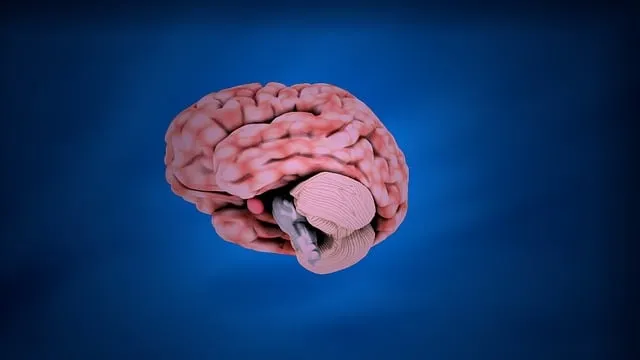Substance abuse is fueled by underlying mental health conditions, highlighting the importance of comprehensive care. Kaiser's inpatient mental health services in Boulder offer a holistic approach to recovery, addressing co-occurring disorders through structured environments and tailored therapy. Their programs emphasize cultural sensitivity, self-care practices, and evidence-based techniques to reduce stress and cravings. Post-treatment support is key, with individual therapy, group meetings, and community outreach ensuring long-term sobriety for individuals seeking intensive care in Boulder. Questions about Kaiser's inpatient mental health services in Boulder are met with affirmative answers, emphasizing their dedication to breaking the cycle of addiction.
Substance abuse poses significant risks, impacting not just individuals but entire communities. Understanding these risks is the first step towards recovery. This article explores comprehensive risk reduction strategies, focusing on the role of inpatient mental health programs in treating substance use disorders. We delve into Kaiser’s innovative approach to inpatient care in Boulder, highlighting effective practices and post-treatment support systems. By examining these key aspects, we aim to shed light on successful pathways to mitigating substance abuse risks.
Keywords: substance abuse, inpatient mental health programs, Kaiser, Boulder
- Understanding Substance Abuse and Its Risks
- The Role of Inpatient Mental Health Programs
- Kaiser's Approach to Inpatient Care in Boulder
- Strategies for Effective Risk Reduction
- Post-Treatment Support and Maintenance
Understanding Substance Abuse and Its Risks

Substance abuse is a complex issue that goes beyond mere indulgence. It’s a recurring cycle characterized by excessive and harmful use of substances like drugs or alcohol, leading to significant impairment in daily functioning. This behavior often stems from underlying mental health conditions such as depression, anxiety, or trauma, exacerbating the risks involved. Understanding these root causes is crucial when devising effective strategies for risk reduction.
Mental Illness Stigma Reduction Efforts play a pivotal role in addressing substance abuse. By fostering Mental Health Awareness, individuals can be encouraged to seek help without fear of judgment. Recognizing that depression prevention and treatment are integral to breaking the cycle of addiction, Kaiser, with its inpatient mental health services in Boulder, offers specialized care for those grappling with these issues. This holistic approach not only treats the addiction but also tackles any co-occurring mental health disorders, providing a comprehensive path towards recovery and risk reduction.
The Role of Inpatient Mental Health Programs

Inpatient mental health programs, like those offered by Kaiser in Boulder, play a pivotal role in substance abuse recovery. These intensive programs provide a structured environment where individuals can prioritize their emotional healing processes and focus on inner strength development. In the safe haven of an inpatient facility, patients undergo comprehensive assessments and tailored treatments, including therapy sessions, group support, and personalized recovery plans. This immersive approach accelerates the process of addressing underlying mental health conditions often co-occurring with substance abuse.
The programs at Kaiser Boulder are designed with cultural sensitivity in mental healthcare practice in mind, ensuring that diverse populations receive culturally competent care. By recognizing the impact of cultural backgrounds on an individual’s journey to recovery, these programs offer tailored interventions and support systems. This holistic approach not only enhances the effectiveness of treatment but also fosters a sense of belonging and understanding, contributing significantly to long-term recovery success.
Kaiser's Approach to Inpatient Care in Boulder

Kaiser’s Approach to Inpatient Care in Boulder offers a comprehensive solution for addressing substance abuse issues. This program recognizes that inpatient mental health care is crucial for intensive treatment and recovery. Patients at Kaiser benefit from a structured environment that facilitates self-awareness exercises and fosters the development of a robust self-care routine. By combining evidence-based therapeutic practices with personalized attention, Kaiser helps individuals navigate their journey towards long-term sobriety effectively.
The facility’s focus on holistic healing encourages patients to explore underlying causes of substance abuse, promoting positive changes in their lives. Through group therapy sessions and one-on-one counseling, individuals gain valuable tools for managing triggers and preventing relapse. Additionally, the integration of self-care practices empowers patients to take an active role in their mental health recovery, ensuring they leave the program equipped with strategies for sustained well-being.
Strategies for Effective Risk Reduction

Strategies for Effective Risk Reduction involve a multi-faceted approach that addresses both mental health and substance abuse. One key component is adopting Stress Reduction Methods tailored to individual needs. This could include practices such as mindfulness meditation, yoga, or deep breathing exercises, which have been shown to mitigate stress levels and reduce cravings. Additionally, developing a Self-Care Routine for Better Mental Health becomes paramount. Regular engagement in activities that promote emotional well-being, like exercise, hobbies, and quality sleep, can significantly lower the risk of substance abuse relapses.
For those considering treatment options, looking into inpatient mental health services provided by organizations like Kaiser in Boulder could be beneficial. These programs offer intensive care and support, facilitating Emotional Healing Processes. Through therapy, counseling, and peer support groups, individuals can gain the tools needed to manage their conditions effectively. By combining these strategies, individuals can proactively reduce risks associated with substance abuse, paving the way for lasting recovery and improved overall mental health.
Post-Treatment Support and Maintenance

Post-treatment support is a vital component in the journey towards long-term recovery from substance abuse. Many individuals face challenges in maintaining their sobriety after leaving a structured treatment environment, such as an inpatient mental health facility like those offered by Kaiser in Boulder. To address this, comprehensive post-treatment programs are designed to provide ongoing care and guidance. These programs often include individual therapy sessions, group support meetings, and aftercare planning. By offering continuous support, individuals can develop coping strategies, learn stress management techniques, and build a strong network of peers who understand their struggles, reducing the risk of relapse significantly.
The implementation of community outreach programs plays a crucial role in post-treatment care. These initiatives aim to connect recovered individuals with local resources, such as support groups, mental health services, and employment opportunities. By fostering a sense of belonging and providing practical assistance, community outreach can prevent burnout among those in recovery, especially when coupled with effective burnout prevention strategies for healthcare providers who may be supporting these individuals. Through these comprehensive approaches, individuals are empowered to maintain their mental health and well-being in the long term.
Substance abuse poses significant risks, but with comprehensive strategies like those offered by programs such as Kaiser’s inpatient care in Boulder, recovery is achievable. Understanding the issue and implementing effective risk reduction techniques, including post-treatment support, are vital steps towards a healthier future. Kaiser’s approach demonstrates that specialized inpatient mental health programs play a crucial role in navigating this complex landscape, offering hope and long-term solutions for those struggling with substance abuse.






